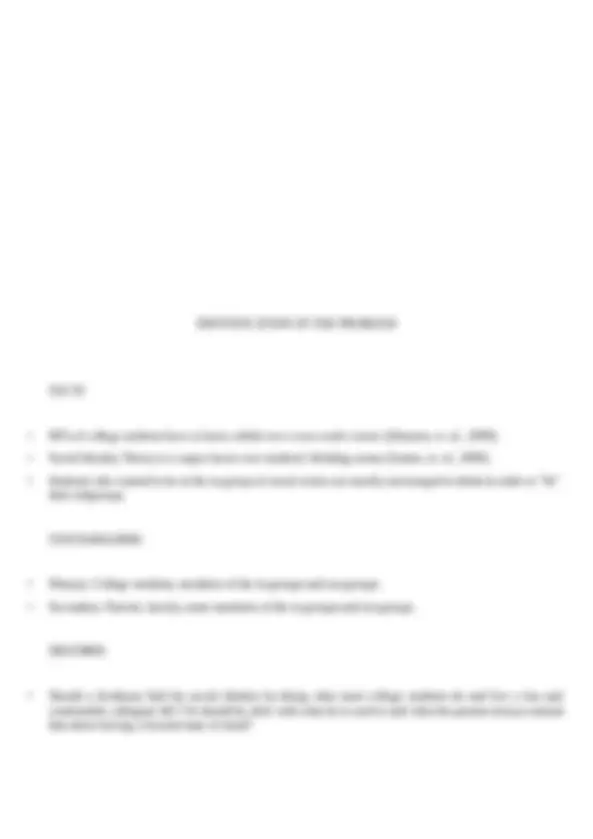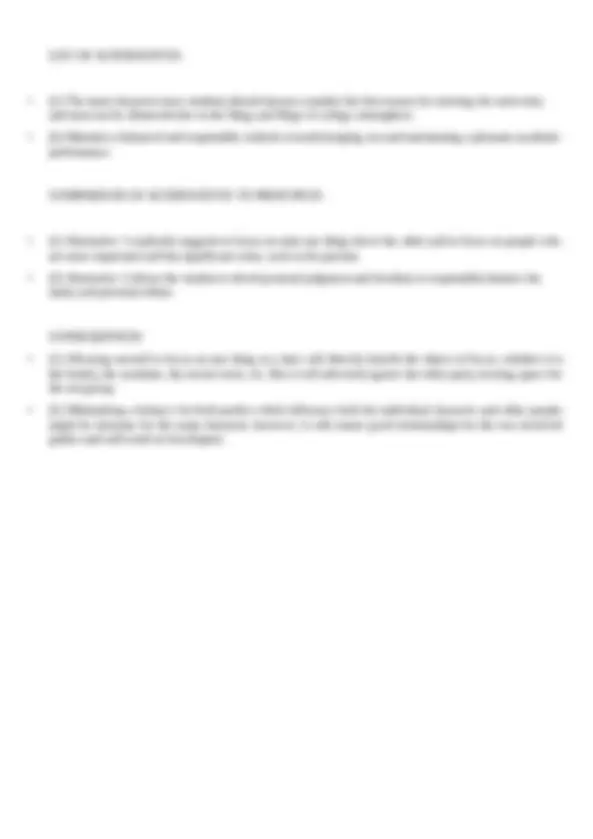





Study with the several resources on Docsity

Earn points by helping other students or get them with a premium plan


Prepare for your exams
Study with the several resources on Docsity

Earn points to download
Earn points by helping other students or get them with a premium plan
Community
Ask the community for help and clear up your study doubts
Discover the best universities in your country according to Docsity users
Free resources
Download our free guides on studying techniques, anxiety management strategies, and thesis advice from Docsity tutors
A Case Study on Peer Pressure in compliance under ETHICS course subject
Typology: Essays (university)
1 / 6

This page cannot be seen from the preview
Don't miss anything!




University of Southeastern Philippines
“WEAKSHIT” - Peer Pressure As A Factor
In Social Identification of
Freshmen Students
Consuegra, Hans Andrew D.
A Case Study In Partial Fulfillment
of the requirements for
ETHICS
April 30, 2019
According to multiple researches both local and international, college students appear to be drinking more often and harder than non-college peers. J. Palmeri pointed out that over 80% of US-based college students have at least a drink over a two-week period.
As stated by Santor, et. al., (2000), peer pressure is one of the major factors in contributing to developing risk-taking behaviors. We see our peers as models or examples in how we should behave, especially in a strange and completely new collegiate atmosphere which we are not used to. The activities in which we engage due to peer pressure can come into many beneficial or malign forms, such as engaging to sports, being active in academics, reforming spiritual values through prayer meetings and the likes, but it also comes as trying new things such as alcohol, or even drugs, as well as engaging into verbal or physical violence.
To properly set this case in a logical scenario, the Social Identity Theory will be followed. The Social Identity Theory (SIT) states that an individual’s view of his self-concept is significantly influenced by how other peer groups see that person. In a college setting, students might form social groups where they consider the in-groups as positive or socially accepted and the out-groups as negative. This leads to a perspective where students who are non-drinkers are considered socially isolated because of the drinking norms of college students.